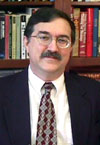Historical study and history education in the United States today are in a bad way, and the causes are linked. In both cases, we have lost our way by forgetting that the study of the past makes the most sense when it is connected to a larger, public purpose, and is thereby woven into the warp and woof of our common life. The chief purpose of a high school education in American history is not the development of critical thinking and analytic skills, although the acquisition of such skills is vitally important; nor is it the mastery of facts, although a solid grasp of the factual basis of American history is surely essential; nor is it the acquisition of a genuine historical consciousness, although that certainly would be nice to have too, particularly under the present circumstances, in which historical memory seems to run at about 15 minutes, especially with the young.
No, the chief purpose of a high school education in American history is as a rite of civic membership, an act of inculcation and formation, a way in which the young are introduced to the fullness of their political and cultural inheritance as Americans, enabling them to become literate and conversant in its many features, and to appropriate fully all that it has to offer them, both its privileges and its burdens. To make its stories theirs, and thereby let them come into possession of the common treasure of its cultural life. In that sense, the study of history is different from any other academic subject. It is not merely a body of knowledge. It also ushers the individual person into membership in a common world, and situates them in space and time.

